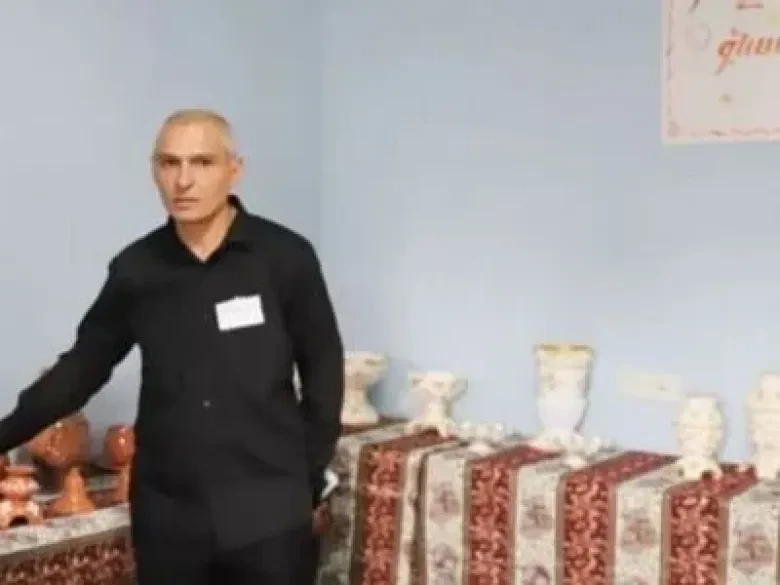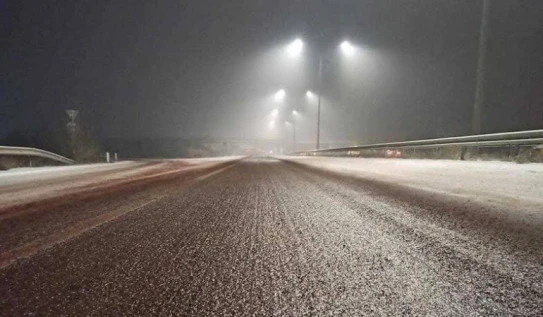On November 19, 2024, the Center for Legal Initiatives received the open letter of Aram Arakelyan, who is serving a sentence of life imprisonment in "Sevan" Penitentiary, through which he announced that he is on a hunger strike, refusing to take the medication that ensures his vitality. In the message distributed by Knetron it is also said:
"The reasons were related to the change of the security zone and dissatisfaction with parole.
On November 21, 2024, the organization was informed that the convict had left the hunger strike. However, the study of the information collected by the organization stated that the decision to withdraw from the hunger strike was not due to the resolution of the problems indicated in the open letter, but to the fact that the refusal of medication led to the deterioration of the convict's health, due to which, according to the information provided, he began to receive treatment and at present he has somewhat recovered his health.
The organization appealed to the Ministry of Justice, asking for clarifications on a number of issues raised by the convict in the open letter.
In the open letter, it was stated that the Probation Service presented to the court the opinion of the victim's successor, who died in 2021, during the examination of the convict's parole issue in 2024. In addition, new successors were presented by the Probation Service.
In this regard, the Ministry of Justice informed that the report of June 14, 2024, submitted by the Probation Service regarding the conditional release of Aram Arakelyan from serving his sentence, states that the victim's successor K.A. died on September 28, 2021, and S. H. in 2003.
As for the claim to include the position of a person who is not a successor in the report, the Ministry informed that the position presented by NA was not stated as the successor of the victim, but as the position of the relative of the successor of the victim.
From a detailed analysis of the Criminal Procedure Code, it becomes clear that there is no legal norm by which any person can be recognized as a victim instead of the deceased victim's successor, therefore it is not logical, moreover, it contradicts the existing regulations, that the position of the relative of the victim's successor was included in the report.
The convict is currently serving his sentence in the mild conditions of the medium security zone of the "Sevan" penitentiary. The institution gave a positive conclusion regarding the easing of the conditions of serving the punishment, that is, the transfer to the strict conditions of the low-security zone, but the placement commission operating in the central body of the Penitentiary Service rejected several times the pleas of the convict regarding the easing of the conditions of serving the sentence.
The ministry has informed that the placement commission considers that the resocialization works and behavioral studies carried out with the convict should still be carried out in the mild conditions of the medium security zone.
By refusing to transfer him to a low security zone, among other circumstances, the riskiness caused by the nature and danger of the crime committed by the convict, the riskiness of observing and predicting the behavior caused by such riskiness in different areas, the riskiness of reoffending and the transfer to the lowest security zone, the values accepted in society through resocialization and the need for an objective assessment of the assimilation of norms, the features of the low security zone (having the character of preparation for release from punishment, society's creation of even wider, daily conditions for direct contact with, reduction of the intensity of behavior control, leaving the penitentiary without intensive control, for example through long trips, establishing free contacts).
In connection with the above, we are concerned about what work is currently being done with the convicted person to assess and reduce the riskiness caused by the nature and danger of the crime committed by him, to observe and predict the behavior caused by such riskiness in different areas, to assess and reduce the riskiness of reoffending and moving to the lowest security zone. in the direction of forming an objective assessment of the assimilation of values and norms accepted in society through resocialization, which can fully guarantee a person's compliance with low security to the features of the zone, that is, having the character of preparation for release from punishment, creating even wider, daily conditions for direct contact with society, reducing the intensity of behavior control, leaving the penitentiary without intensive control, for example, through long trips, establishing free contacts.


